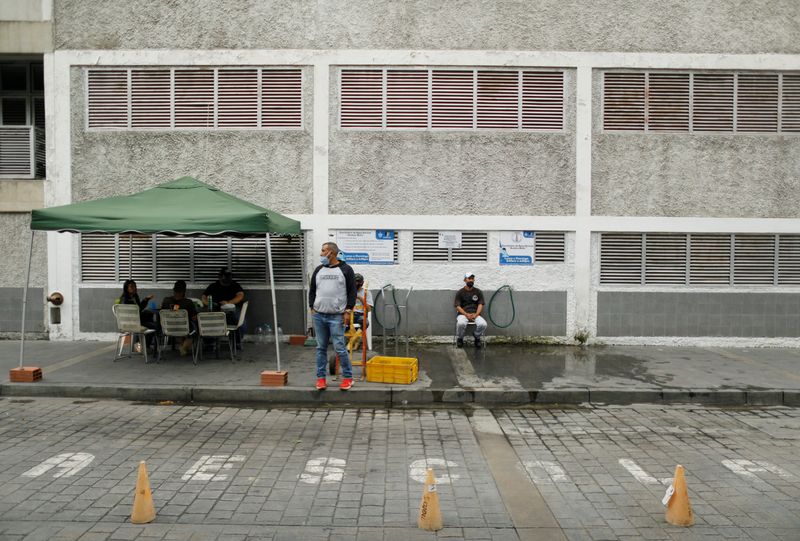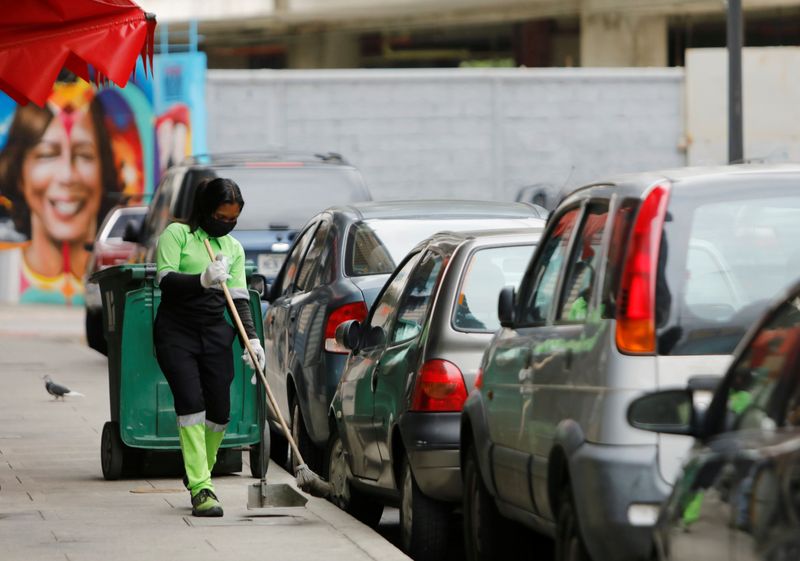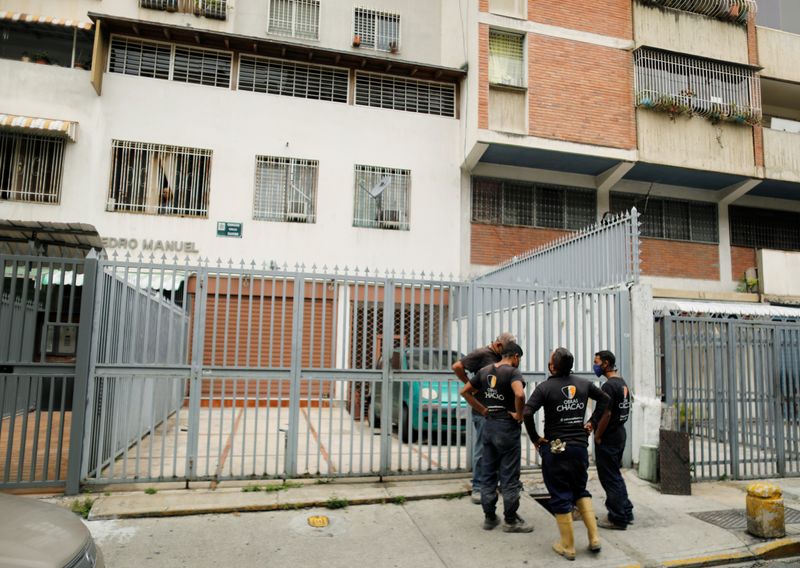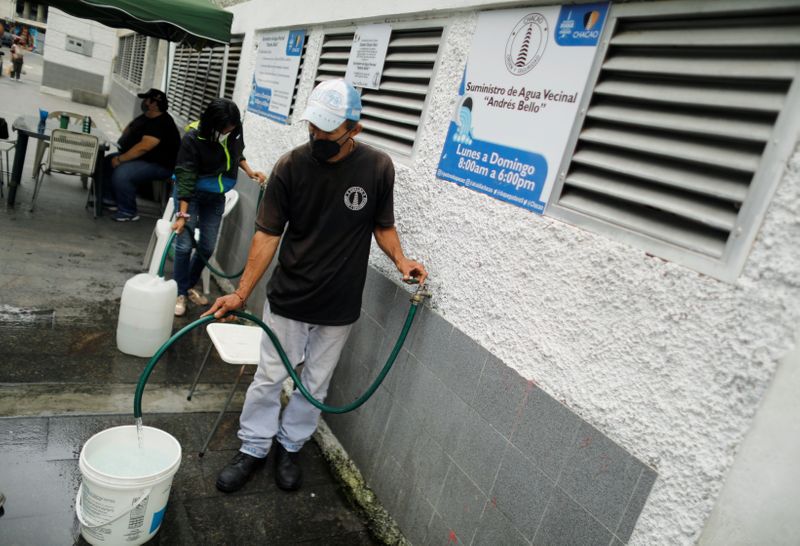CARACAS (Reuters) – Venezuelan mayors desperate for cash are levying hefty tax hikes and launching aggressive collection campaigns that have spurred complaints from businesses already struggling to stay afloat in an economy battered by economic crisis and the global pandemic.
Bills for local taxes and municipal services, which were for years so cheap that business hardly noticed them, have over the last year jumped to thousands of dollars per month. In some cases, that has led to legal disputes and incarcerations.
It is the latest chapter in President Nicolas Maduro’s abrupt liberalization of Venezuela’s economy as U.S. sanctions ushered in an end to generous subsidies and price caps that kept goods and services artificially cheap.
That liberalization has also largely halted federal transfers of oil revenue to municipalities that had for decades kept local governments’ coffers full.
The situation creates another challenge for businesses that are barely surviving hyperinflation and Venezuela’s six-year recession by effectively linking local taxes and municipal services to the greenback.
“Because the government doesn’t give them money to do what they need to do, the municipalities are trying to make taxation their source of revenue,” said tax consultant Hector Orochena.
“Business now face economic insecurity because there’s no way to know how high the dollar will go.”
In the industrial city of Valencia, one merchant said the mayor’s office billed his business $5,200 in taxes for 2020 – more than his total profits for a year in which his business was shuttered for eight months due to the pandemic.
A single municipal tax rose 9,481% in 2020, he added. The municipal government of Valencia did not immediately respond to a request for comment.
In some of Venezuela’s 335 municipalities, mayors are also authorizing concessionaires to sharply increase rates for municipal services. Trash collection fees have jumped by 187,018%, according to calculations by the opposition-linked Venezuelan Observatory of Finance.
The information ministry did not reply to a request for comment.
Big businesses in Caracas receive bills ranging from $7,000 to $40,000, according to receipts seen by Reuters and a dozen sources. The amounts did not decline during the quarantine even though they generate less trash due to reduced operations.
“In a dollarized economy, maintaining a trash truck costs a lot of money,” said Chacao mayor Gustavo Duque, acknowledging that rates have jumped in the last year. “For many years, the service for residents was free.”
CARACAS VERSUS MIAMI
Many businesses are accumulating debts with municipal governments. A Caracas office tower in the upscale district of Chacao in 2020 received a trash bill for $25,000 that it was unable to pay for almost a year, leading trash to build up on its premises, according to two people involved in the situation.
The company that manages the tower was sued by state prosecutors for environmental crimes associated with uncollected garbage late in 2020, according to a legal document seen by Reuters.
Two of the company’s employees were jailed and released days later after it hired a trash collection service from outside the municipality this year.
In February, the company agreed to pay half the bill, the sources added.
Maduro this year said in a televised broadcast that mayors had to figure out how to finance municipal expenses such as fixing pot-holes, and has insisted that citizens and businesses have to pay for public services that were for years heavily subsidized.
“These are disproportionately high amounts. There are not economic conditions to (pay) them,” said Lorenzo Araujo, vice president of the chamber of commerce of the industrial city of Valencia.
Chacao councilman Maximo Sanchez, in a letter in late 2020 responding to neighbors who complained about trash collection rates, noted that Miami residents pay between $400 and $600 per year in trash collection.
In Chacao, the “highest rate is 20 dollars a month,” he noted. Sanchez did not respond to a request for comment.
“It is not possible to make the few companies that have stayed alive to pay for the entire bureaucracy of the state, the municipalities and regions,” said Ricardo Cusanno, president Fedecamaras, Venezuela’s main business group.
(Reporting by Corina Pons and Mayela Armas, additional reporting by Tibisay Romero in Valencia and Vivian Sequera in Caracas, Writing by Brian Ellsworth; Editing by Alistair Bell)






















